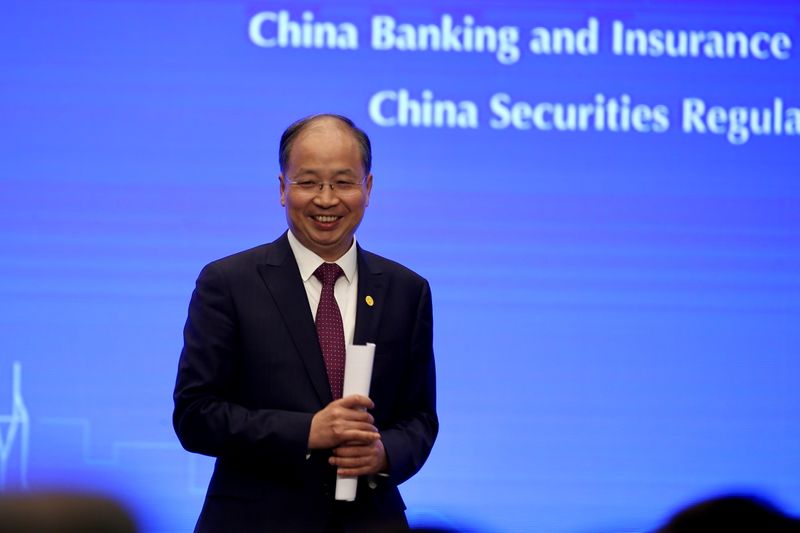SHANGHAI (Reuters) - Chinese hedge fund managers parried criticism of their trading techniques and market impact on Tuesday, a day after the country's top securities regulator said the rapidly growing number of "quants" was a challenge to stock exchanges.
Yi Huiman, chairman of the China Securities Regulatory Commission (CSRC), said on Monday bourses should be paying attention to a surge in quantitative trading on the mainland. Quants, as traders and funds that engage in such trading are known, employ fast computers that use mathematical and statistical analyses to trade.
In mature markets, such quantitative and high-frequency trading had led to better liquidity, but also spawned herd behaviours, greater volatility and unfairness, Yi said.
Fund managers were quick to deflect that criticism, which comes at a time of heightened market concerns as China launches a series of regulations against sectors ranging from technology to private tutoring.
Yi's remarks also come as analysts debate the role of China's 'flash boys' -- the data-driven, fast-paced hedge fund traders -- in a thriving stock market.
"You cannot just blame quants, without blaming long-only funds" for causing market problems, said Yuan Yuwei, a hedge fund manager at Water Wisdom Asset Management.
"Actually, long-only funds do more harm to markets" in China, where short selling of shares is restricted, he said.
Xueming Zhang, head of Antifragile Investment at China iFund Asset Management Co Ltd, distanced his company from the type of funds potentially being targeted by regulators.
"Our quantitative strategy is different from the mainstream these days, which is high-frequency trading," Zhang said.
"It's understandable that regulators don't want to see barbaric growth of the sector triggering excessive volatility."
China's quantitative private funds totalled nearly 1 trillion yuan ($154.6 billion) at the end of June, according to Citic Securities. That's almost ten times their size in 2017.
The chief executive of a major high-frequency hedge fund in China said the asset manager had been in constant contact with regulators, who are studying the business.
"High-frequency trading under China's stock trading mechanism is different from that in U.S. and European markets," said the executive, who declined to be identified due to sensitivity of the topic. Under China's system, stocks cannot be sold on the same day of purchase.
"But it's a trend for regulators to set up an effective management framework, which we support."
The spotlight on 'flash boys' coincides with an explosion in China's stock trading volumes. Daily turnover has exceeded 1 trillion yuan for over 30 consecutive sessions.
Estimates of how much quant funds contribute to this turnover vary. Citic Securities puts the figure between 10%-15%, while Guosen Securities estimates it's over 20%.
Some of the biggest players include High-Flyer Quant, Ubiquant Investment and Shanghai Minghong Investment Management Co. The market has also attracted global hedge fund houses such as Winton Group and Man Group, as China presses on with opening its capital markets.
Instead of imposing tighter regulations on hedge funds, China should improve its shorting mechanism and allow intraday trading of stocks, said Yuan of Water Wisdom.
"It's time to reform the trading mechanism of A-shares," he said.
